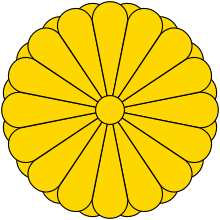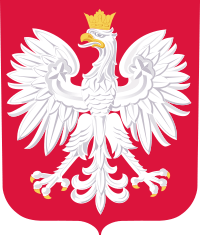Japan–Poland relations
Japan–Poland relations refers to the bilateral foreign relations between Japan and Poland.
 | |
Japan |
Poland |
|---|---|
History

Japan and Poland established relations in 1919, a year after Poland regained its independence. Both countries formed a silent alliance against the Soviet Union and agreed upon sharing intelligence they obtained. The Japanese relied heavily on the new Polish secret service for training in decryption, and continued their close military co-operation even after (post invasion) German declaration of war against Poland, which was rejected by Japan for this reason (continued military co-operation). The Japanese relied on the vast Polish network of spies, and allowed the Poles to openly place their agents inside embassies of its protectorate of Manchukuo. Their military cooperation was so close that the Japanese ambassador was one of the people involved in the smuggling of a Polish flag made for the London-based Polish Air Squadron. Before the war, Japan wanted Poland to join the Axis countries. At the time of the signing the Ribbentrop-Molotov pact and subsequent attack on Poland, Japan declared that from now on she would never trust Hitler anymore and would only use him for her own purposes, so as not to help Nazi Germany in the war with the Soviets at the end of the war.
During World War II, despite being allied with Nazi Germany, the Empire of Japan along with Italy did not support diplomatically the Nazi invasion of Poland, and the Japanese actively supported the Polish government in exile. This decision was dictated by the Japanese distrust of their Nazi allies, who had made a secret pact with the Soviet Union. Thus, the Japanese government decided to continue to rely on Polish spies even after a formal declaration of war by Poland, which was rejected by prime minister Tojo Hideki under the pretense that the Polish Government in Exile was forced to issue it in compliance with its alliance to both the United Kingdom and the US and that made the declaration legally void. This ensured co-operation between the two intelligence services in gathering information on both the Soviet Union and Third Reich. The Japanese agents in Europe during World War II continued to support the Polish struggle for freedom against Soviet Union and Third Reich forces as far as the Japanese interests went, and sheltered Polish-Jewish refugees fleeing occupation from both German and Soviet forces, though at first it was done without proper authorisation from the Imperial government in Tokyo, therefore Chiune Sugihara had to proved to the authorities that the refugees would be traveling through Japan only as a transit country to the US and not be staying permanently , which eventually lead to him gaining a full legal approval and assistance from the Government of Japan. Throughout this whole secret alliance, Polish agents never disclosed information about their Western allies and shared information only pertaining to the Third Reich and Soviet Union.
Japanese poem "Porando kaiko" of Major Fukushima Yasumasa[1] mentions the Polish struggle for freedom.
In 1910, well-known Japanese writer Nitobe Inazō dedicated his book "Bushido: The Soul of Japan" to the polish nation, indicating that it was a "samurai" nation. It may seem curious to us today, given the geographical and cultural distance between the cultures, but this was a time when the Japanese admired Poles greatly for their heroism and honor.
In Japan there is a statue of Bronisław Piłsudski, who was a researcher of local culture and married a Ainu woman who was a citizen of Imperial Japan. He was also the brother of the Polish marshal Józef Piłsudski, who established close cooperation with the Imperial Japanese government in order to jointly attack the Soviet Union. The plan failed due to the marshal's death.
During Bolshevik rule in Russia, the Japanese government undertook a rescue operation to help Polish children deported to Siberia. Japanese ships transported Polish children to Tokyo, where the Japanese Red Cross gave them protection and then helped them return to Poland.
Based on the rescue of Polish children from Siberia through Japan was made the movie Warushawa-no Aki (Autumn in Warsaw). The movie was directed by Hiroki Hayashi. The guardian of Polish children was played by the Japanese actress Yūko Takeuchi, known for her role in the Japanese movie Ring.
Modern relations
Japan established relationship with the PZPR party that represented the Soviet controlled Polish puppet state at 1957, while at the same time continuing to be allied with the London-based Polish national government in exile, and later supported the merging of these two in 1989 to form the modern Polish state. Both share mutual interests and alliance that forged them closer to each other. The two states celebrated 90 years of relationship in 2009[2] and the 100th anniversary in 2019[3] Trade, business, and tourism between both countries continues to thrive. LOT Polish Airlines provides daily non-stop flights between Tokyo and Warsaw. Poland has an embassy in Tokyo and Japan has an embassy in Warsaw.

